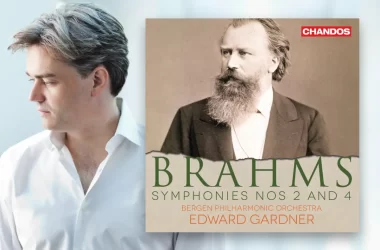Any release of the full set of the String Quartets by Bartók is something of an occasion, not to mention an achievement by itself. But the competition is also fierce, with superb sets already ruling the catalog, with one recent – The Heath Quartet’s on Harmonia Mundi – a tremendous success.

What The Quatuor Diotima brings to the table is a real sense of historical progression, somewhat missing from other sets. The First Quartet sounds as if born from the womb of French impressionism and Austro-Hungarian romanticism (this includes the stylistic approach), rather than playing as if from a clean slate. There is no doubt this piece came from the same pen that produced the late masterpieces for the form, but the Diotima members manage to remind us of its roots, and not just its flashy originalism.
This also applies when things progress. The internal struggles and intensity of the Third Quartet are taking into account the revolutionary contribution by modernist composers of the 1920s. This quartet was a highlight of the Heath version, with an impressive blend of the four players in the bombastic chords of the first movement. But hear how focused and well rooted are these violent chords sound here, at around 02:20. They may be less dramatic, but no less effective. Nice bowing technique at 1:30 in this movement too.
The Fourth Quartet, similar in character to the third but written on a larger scale, is nicely done indeed, full of vigor and propose, sensitive to the almost mathematical organization of the movements – The return to the main subject at 3:30 of track 5 in the second CD is a good example. A little shame about the second, “Prestissimo, con sordino” movement which, though technically impressive, at times sounds too literal. The Takács are at their best in this movement, on their Decca recording from the late 1990s.

Throughout this set, the Diotima members are most impressive in the difficult, allusive slow movements. We have here, I dare say, some of the best performances on record of these movements, which can be attributed to the groups’ superb control of tone shading, vibrato and rhythmic fluctuation. The second, Adagio Molto movement of the Fifth Quartet – A wonder of the world if there ever was one in classical music – is nothing but superb, sensitive to the lights and shadows created by the tonal instability and to the sense of isolated stillness so needed in this music. The Végh quartet remains unsurpassed here, but the Diotima are coming very close.
But they can project playful liveliness too when called for, such as in the dance movements of the two late quartets (Tracks 3 and 8 in the third CD). The third movement of the Sixth Quartet is a good example of the uniqueness of this performances – hear how the group starts the “Meso” episode and play the faster “Burletta” with the frightening opening still hanging in the air. Not many ensembles have the control needed to achieve that.
Well Recorded, Important Addition
It’s worth mentioning the group is well served by the recording quality – with aspects of the interpretation coming off extremely well, such as in the tremolo at the beginning of the second movement of the Sixth Quartet, rarely heard so clearly.
All in all, this is an important addition to the catalog, one that perhaps brings a more lyrical, inner-looking approach to these masterpieces, an approach mastered previously by the famous Végh Quartet (accidentally now offered on the same label) and was given a less emphasis from other masterful versions – Namely the Takács and Heath versions, both an indispensable versions.
Bartók – Complete String Quartets (1-6)
Quatuor Diotima
Naïve Records, CD 822186054529




















